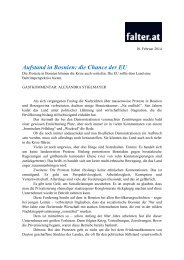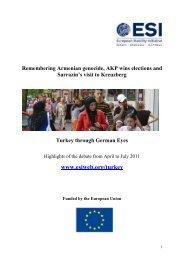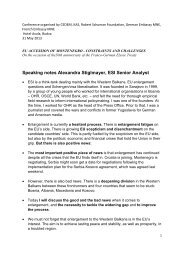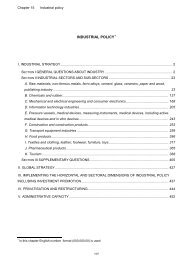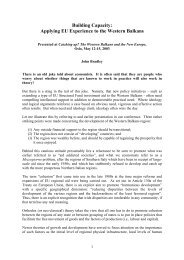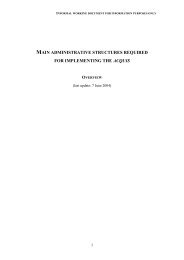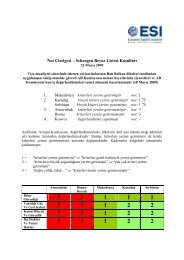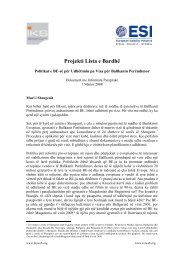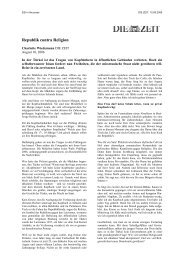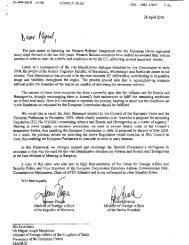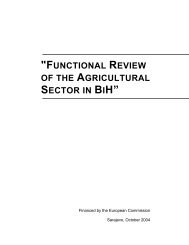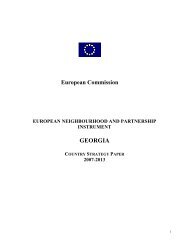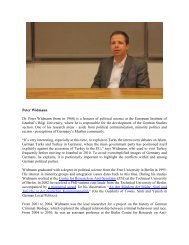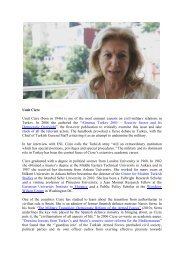Gender Assessment for USAID/Caucasus/Azerbaijan
Gender Assessment for USAID/Caucasus/Azerbaijan
Gender Assessment for USAID/Caucasus/Azerbaijan
You also want an ePaper? Increase the reach of your titles
YUMPU automatically turns print PDFs into web optimized ePapers that Google loves.
MAINSTREAMING GENDER<br />
Bureau <strong>for</strong> Europe & Eurasia (E&E), <strong>USAID</strong><br />
More Effective & Better-targeted Development<br />
Annex D<br />
Mainstreaming gender is one of E&E’s major cross-cutting goals because (1) it gives us<br />
better targeted and more effective development activities and (2) it responds to new<br />
<strong>USAID</strong> procurement guidelines which call <strong>for</strong> attention to gender in planning and<br />
procurement.<br />
• "<strong>Gender</strong>" is not another word <strong>for</strong> “women.” It means examining the problems,<br />
opportunities, and solutions <strong>for</strong> both men and women, particularly as they may<br />
differ.<br />
• Mainstreaming gender means analyzing potential gender differences by asking<br />
such questions as the following and using the answers to shape planning and<br />
implementation:<br />
• How are the problems of men and women different? How might solutions be<br />
different?<br />
• How might contributions of men and women to programs be different?<br />
• How might activities differentially affect women and men?<br />
As the examples below show, using gender as an additional lens through which to view<br />
and resolve technical issues will result in better targeted and more effective activities.<br />
Social Transition<br />
• In Central Asia, a <strong>USAID</strong> study examined health costs by gender and found that men<br />
and women use health facilities differently and that the costs are different. Because<br />
of both custom and health problems, men go to hospitals and women to clinics, and<br />
men’s per-capita care is more expensive. Now, a clinic outreach program specifically<br />
targets men, which will improve their preventive care and, thus, their health. It will<br />
also result in considerable savings in health budgeting.<br />
• In Kyrgyzstan, recent World Bank research used gender and age in measuring<br />
vulnerability. The data show that young men are more economically at risk than<br />
women their age and are also particularly susceptible to high-risk behavior such as<br />
drinking, drug use, crime -- including drug trafficking -- and physical violence. The<br />
lack of work opportunities has resulted in a cycle of hopelessness leading to<br />
anti-social behavior. Not only does this have a detrimental impact on communities, it<br />
also has major national security implications. Consequently, the report calls <strong>for</strong><br />
specific targeting of young men in job-creation and other anti-poverty activities.<br />
Economic Transition<br />
• In Georgia, a micro-enterprise program had been available only <strong>for</strong> women.<br />
However, a gender analysis of the target population -- internally displaced persons<br />
DevTech Systems, Inc. 1 <strong>USAID</strong>/<strong>Caucasus</strong>/<strong>Azerbaijan</strong><br />
<strong>Gender</strong> <strong>Assessment</strong>



